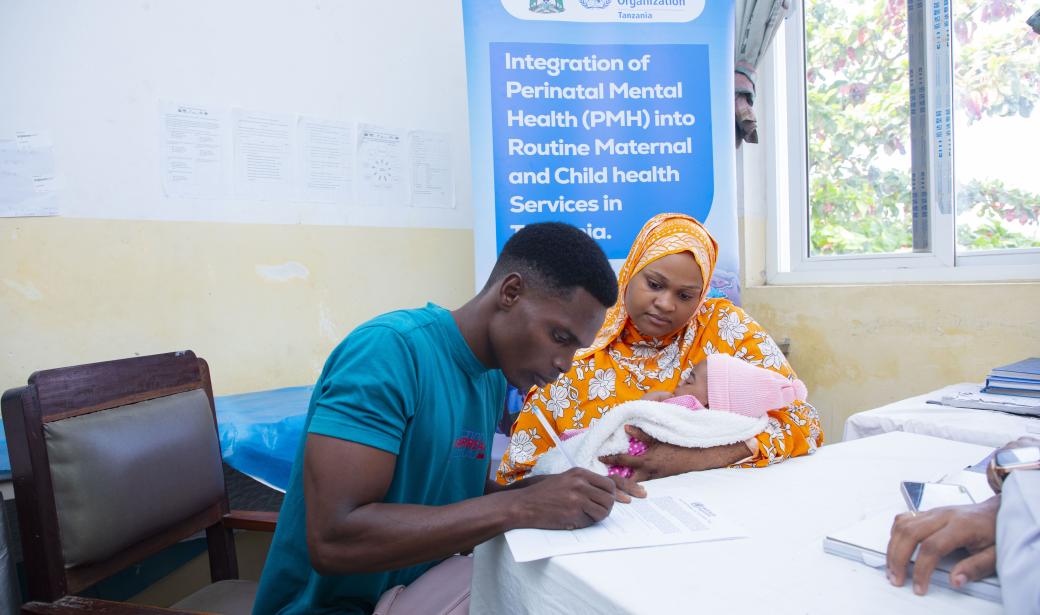When Amina Masudi became pregnant with her second child, she expected joy. Instead, she was met with waves of anger, sadness, and an overwhelming desire to be alone. “I didn’t even want to see my husband,” she recalls softly. “Every day felt heavier. I thought something was wrong with me.”
Her husband, Ally Ally remembers the change vividly: “She was no longer herself. Even when I suggested going to the hospital, she refused.”
In Zanzibar, stigma often leads families to believe such struggles are caused by curses or witchcraft. Many women suffer without help.
With support from the Hilton Foundation, the World Health Organization (WHO) and the Government of Tanzania launched a pilot intervention in three health facilities: Chukwani District Hospital, Mpendae Health Centre, and Mtofani Health Centre. These included, integrating perinatal mental health guideline into routine maternal health care, training of over 20 health workers to provide access and provide timely psychological support to women.
“Before this program, many women suffered in silence,” says Dr Salim Salim, a health worker in the Mpendae Health center. “Now we have the tools to help them, and when we help mothers, we help their babies too.”
With support from the Hilton Foundation, the World Health Organization (WHO) and the Government of Tanzania launched a pilot intervention in three health facilities: Chukwani District Hospital, Mpendae Health Centre, and Mtofani Health Centre. These included, integrating perinatal mental health guideline into routine maternal health care, training of over 20 health workers to provide access and provide timely psychological support to women.
“Before this program, many women suffered in silence,” says Dr Salim Salim, a health worker in the Mpendae Health center. “Now we have the tools to help them, and when we help mothers, we help their babies too.”
Through the program, over 400 women across Zanzibar have benefitted. Women like Amina are now receiving counseling, treatment, and most importantly the reassurance that they are not alone.
Dr Nanai Alphoncina, Technical lead for the NCD programme in WHO stated, “Mental health is a vital part of maternal health. By integrating it into routine care, we are not only improving outcomes for mothers, but also ensuring healthier families and stronger communities.”
Dr Nanai Alphoncina, Technical lead for the NCD programme in WHO stated, “Mental health is a vital part of maternal health. By integrating it into routine care, we are not only improving outcomes for mothers, but also ensuring healthier families and stronger communities.”
For Additional Information or to Request Interviews, Please contact:
Ms Priscilla Mawuena Adjeidu
Communications Officer
WHO Country Office, United Republic of Tanzania
Tel: +255 744377899 (Phone)
Email: adjeidum [at] who.int (adjeidum[at]who[dot]int)



